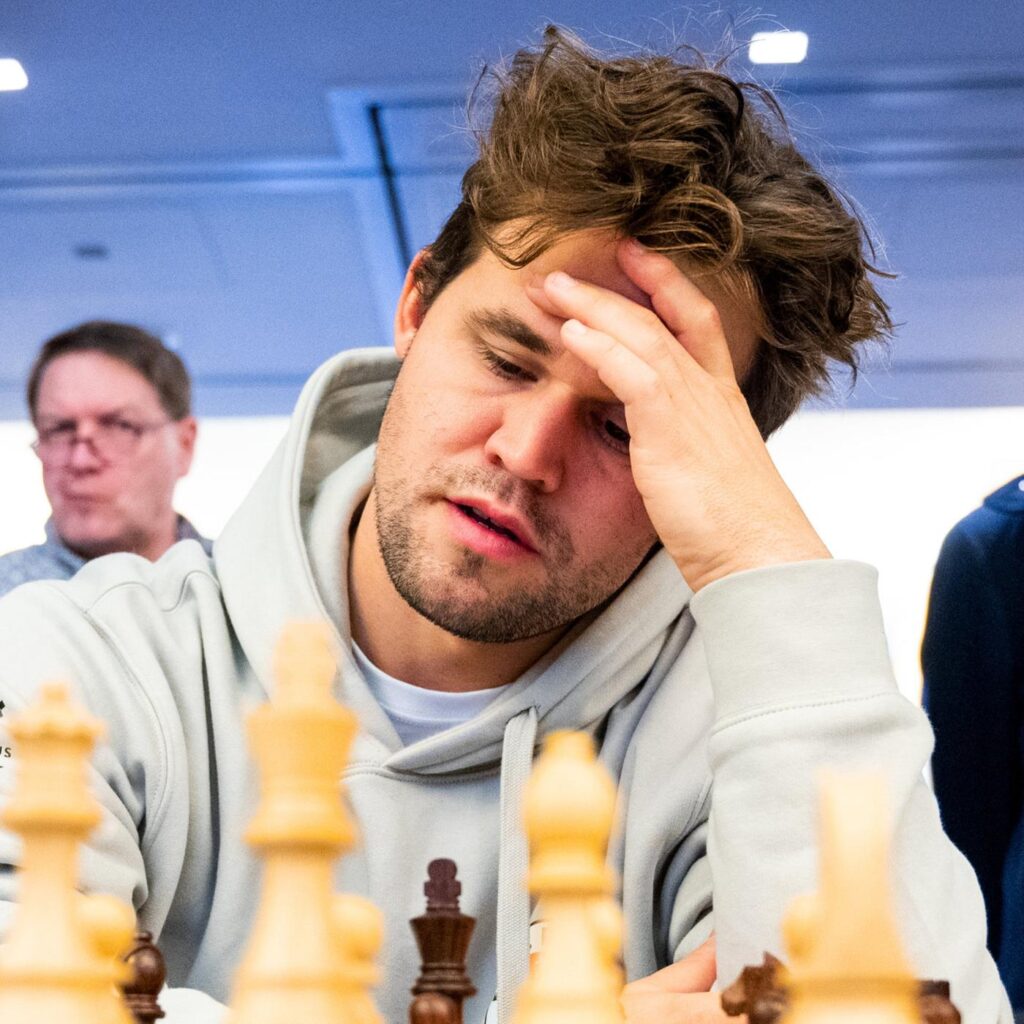
Introduction
Magnus Carlsen, a name synonymous with greatness in the world of chess, has continuously captivated audiences with his extraordinary skills, strategic depth, and mastery of the game. As a former world chess champion, his significance extends beyond just his titles; he represents the zenith of competitive chess today. Carlsen’s influence is vital, especially in inspiring a new generation of players and elevating the global popularity of chess.
Rise to Fame
Born on November 30, 1990, in Tonsberg, Norway, Magnus began showing signs of brilliance at a young age. He became a chess grandmaster at the age of 13, making him one of the youngest in history. Carlsen’s ascent through the ranks was swift; by 2010, he had become the youngest player ever to be ranked world No. 1. His rise was marked by groundbreaking performances, including winning the World Chess Championship in 2013 against Viswanathan Anand, which he successfully defended in subsequent years against challengers like Anand again in 2014, Sergei Karjakin in 2016, and Fabiano Caruana in 2018.
Recent Developments
In 2021, Carlsen defended his title against Ian Nepomniachtchi in Dubai, showcasing his unmatched ability to outwit opponents in high-pressure situations. After a series of decisive games, he demonstrated a level of strategic thinking that few can match. However, in July 2022, Carlsen announced that he would not defend his title in the 2023 Chess World Championship, a decision that shocked many in the chess community. His focus seems to have shifted to other endeavors, including online chess platforms and charity work.
Impact on Chess
Carlsen’s impact on chess extends beyond his victories. He has been at the forefront of generating interest in the game, particularly in the digital era. Through his partnership with various chess platforms, including his role with chess.com, he has made chess accessible to millions globally. Carlsen’s engaging personality and relatable approach to the game, coupled with his strong online presence, have contributed to the surge in popularity of chess during the COVID-19 pandemic.
Conclusion
Magnus Carlsen’s journey from a prodigious talent to a global chess icon illustrates the evolving nature of the game. As he steps away from competitive play, his influence on chess strategy, accessibility, and popularity will continue shaping the chess community for years to come. Chess enthusiasts await what Carlsen will share next, whether it be through teaching, commentary, or new ventures designed to inspire future generations of players.






